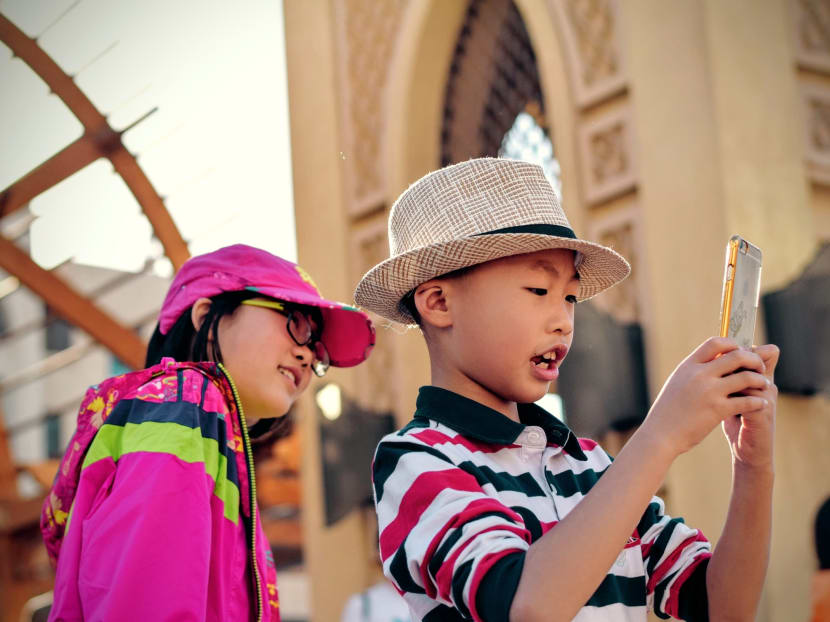More than half of S’pore children encountered inappropriate content in 2020: Google
SINGAPORE — Children in Singapore face a higher risk of encountering inappropriate content online as well as “oversharing” information about themselves on social media last year compared with the year before, a new study by Google has found.

Of the Singapore respondents, more than half (54 per cent) said their children saw inappropriate content in 2020, a sharp increase from 38 per cent in 2019.
SINGAPORE — Children in Singapore face a higher risk of encountering inappropriate content online as well as “oversharing” information about themselves on social media last year compared with the year before, a new study by Google has found.
Cyber bullying in Singapore is also more prevalent, with a quarter of parents polled reporting that their child has experienced bullying online last year, higher than in Malaysia (22 per cent), Australia (21 per cent), Taiwan (18 per cent), Hong Kong (14 per cent) and Japan (10 per cent).
The annual study polled 3,445 parents in Asia and Australia who have at least one child aged between five and 17. A total of 315 parents in Singapore were surveyed.
What the study found in 2020:
Of the Singapore respondents, more than half (54 per cent) said that their children saw inappropriate content, a sharp increase from 38 per cent in 2019.
Another 42 per cent said that their children had overshared information such as personal data, compared with 31 per cent in 2019.
Singapore had the fourth highest cyber-bullying encounters in the region, with one in four (25 per cent) parents reporting that their children had been affected. This was higher than the Asia-Pacific average of 23 per cent.
Around 35 per cent said that their children had received unwanted attention from strangers online, 14 per cent reported that their children had encountered scams, and 12 per cent experienced being hacked.
Why it matters:
The trend of children being exposed to online dangers and lewd content is not new, but the stay-home measures spawned by the Covid-19 pandemic has led to a sharp uptick in such encounters.
“(These findings are) well-founded as Singaporeans spent more time online due to the pandemic — with an average of 3.6 hours daily pre-pandemic to about 4.1 hours post-circuit breaker,” Google said in a statement. The circuit breaker was the partial lockdown period in April and May last year.
For children in particular, many had to do their schooling online. As a consequence, Google said that this has resulted in relaxed house rules to internet access for educational, social and entertainment purposes.
What parents are doing about it:
The study found that 62 per cent of Singapore parents had increased concern about their children’s online well-being during the public health crisis.
However, parents in Singapore were the third worst in the region when it came to taking action, such as using family safety features and parental controls, to protect their child’s online safety.
One in five (20 per cent) of the respondents said that they have not done anything to address online safety concerns. Only Australia (30 per cent) and Japan (41 per cent) fared worse.
More than a third (37 per cent) have never spoken to their children about online safety.
In Singapore, less than half of the parents polled are using features such as YouTube parental controls or Google’s SafeSearch.
These findings showed that Singaporean parents were confident that their children were capable of protecting themselves, Google said.











